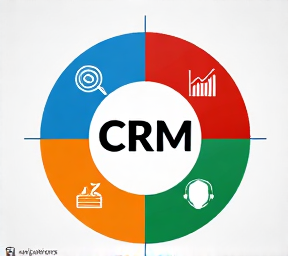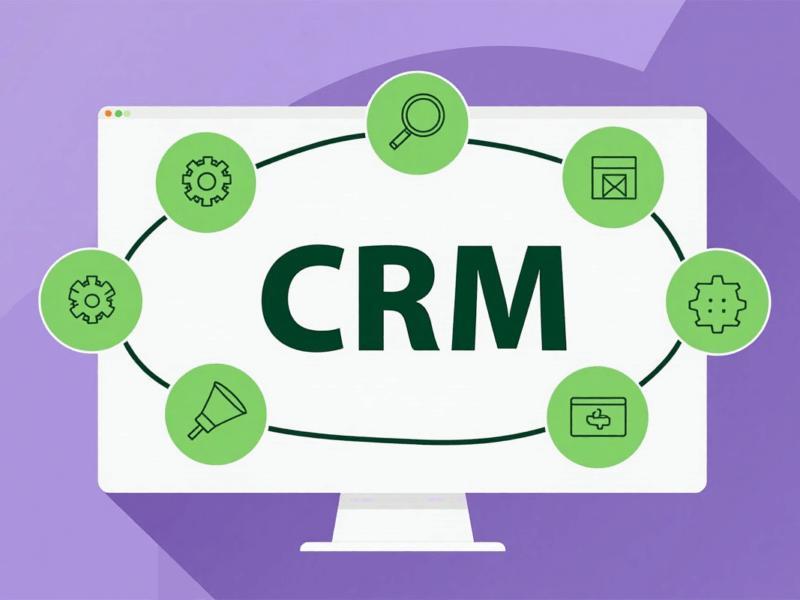The Top CRM Trends for 2025: What to Expect in Customer Relationship Management
As we approach 2025, the landscape of Customer Relationship Management (CRM) is evolving rapidly. Businesses are increasingly recognizing the importance of effective customer management in achieving long-term success. With advancements in technology and shifts in consumer behavior, several key trends are emerging that will shape the future of CRM. This article explores the top CRM trends for 2025, providing insights into what businesses can expect and how they can adapt to these changes.
Understanding CRM and Its Importance
What is CRM?
Customer Relationship Management (CRM) refers to the strategies, practices, and technologies that companies use to manage and analyze customer interactions throughout the customer lifecycle. The goal of CRM is to improve customer service relationships, assist in customer retention, and drive sales growth.
Why is CRM Important?
In a competitive market, understanding and responding to customer needs is crucial. CRM systems help businesses gather data about their customers, analyze this information, and use it to enhance customer satisfaction and loyalty. By leveraging CRM effectively, companies can improve their marketing strategies, streamline operations, and ultimately increase profitability.
Key Trends Shaping CRM in 2025
1. Artificial Intelligence (AI) Integration
The Rise of AI in CRM
Artificial Intelligence is becoming an integral part of CRM systems. By 2025, it is expected that over 70% of CRM solutions will incorporate AI capabilities. This integration allows businesses to automate processes, gain insights from data analysis, and enhance customer interactions.
Benefits of AI in CRM
- Predictive Analytics: AI can analyze historical data to predict future customer behavior, enabling businesses to tailor their marketing efforts accordingly.
- Chatbots and Virtual Assistants: AI-powered chatbots can handle routine inquiries, providing instant responses and freeing up human agents for more complex issues.
- Personalized Recommendations: AI algorithms can suggest products or services based on individual customer preferences and past interactions.
2. Hyper-Personalization
Understanding Hyper-Personalization
Hyper-personalization takes personalization a step further by using advanced data analytics and AI to create highly tailored experiences for customers. This trend focuses on delivering content and offers that resonate with individual preferences.
Implementation Strategies
- Data Collection: Gather data from various sources, including social media interactions, purchase history, and website behavior.
- Segmentation: Use this data to segment customers into specific groups based on their behaviors and preferences.
- Targeted Campaigns: Develop marketing campaigns that speak directly to these segments, enhancing engagement and conversion rates.
3. Integration of Internet of Things (IoT)
IoT’s Role in CRM
The Internet of Things (IoT) refers to the network of interconnected devices that collect and exchange data. By integrating IoT with CRM systems, businesses can gain valuable insights into how customers interact with their products.
Benefits of IoT Integration
- Real-Time Data: IoT devices provide real-time data about product usage, allowing companies to understand customer behavior better.
- Proactive Support: Businesses can use this data to identify potential issues before they escalate, offering proactive support that enhances customer satisfaction.
- Enhanced Product Development: Insights gained from IoT data can inform product improvements and new feature development based on actual user experiences.
4. Omnichannel Customer Experience
The Importance of Omnichannel Strategies
Customers today interact with brands across multiple channels—social media, email, websites, and more. An omnichannel approach ensures a seamless experience regardless of the channel used.
Creating an Omnichannel Strategy
- Unified Customer Data: Integrate all customer interactions into a single view within your CRM system.
- Consistent Messaging: Ensure that messaging is consistent across all channels to reinforce brand identity.
- Responsive Support: Train support teams to handle inquiries from any channel efficiently, providing timely responses that enhance the overall experience.
5. Enhanced Data Security
The Growing Importance of Data Security
As businesses collect more customer data than ever before, ensuring its security has become paramount. By 2025, data security will be a critical focus for CRM systems.
Best Practices for Data Security
- Encryption: Implement encryption protocols to protect sensitive customer information both at rest and in transit.
- Access Controls: Establish strict access controls to limit who can view or modify customer data.
- Regular Audits: Conduct regular security audits to identify vulnerabilities and ensure compliance with data protection regulations.
6. Low-Code/No-Code Solutions
The Shift Toward Low-Code Development
Low-code and no-code platforms allow users with little or no programming knowledge to create applications or automate processes quickly. This trend is making CRM systems more accessible for businesses of all sizes.
Advantages of Low-Code/No-Code Solutions
- Faster Deployment: Businesses can implement changes or new features without waiting for IT support.
- Customization: Users can easily customize their CRM systems to meet specific business needs without extensive coding knowledge.
- Cost Efficiency: Reducing reliance on specialized developers can lower operational costs significantly.
7. Advanced Analytics
Leveraging Analytics for Better Insights
Advanced analytics tools are becoming increasingly important in CRM systems as businesses seek deeper insights into customer behavior.
How Advanced Analytics Benefits Businesses
- Customer Segmentation: Analyze large datasets to identify distinct customer segments for targeted marketing efforts.
- Performance Tracking: Monitor campaign performance metrics in real-time to make informed adjustments quickly.
- Predictive Modeling: Use predictive analytics to forecast future trends based on historical data patterns.
8. Social Media Integration
The Role of Social Media in CRM
Social media has transformed how customers interact with brands. Integrating social media platforms with CRM systems allows businesses to manage these interactions more effectively.
Benefits of Social Media Integration
- Real-Time Engagement: Respond promptly to customer inquiries or complaints on social media platforms.
- Customer Insights: Gather valuable feedback from social media interactions that can inform product development and marketing strategies.
- Brand Advocacy: Encourage satisfied customers to share their experiences on social media, enhancing brand visibility.
Conclusion
As we move toward 2025, the landscape of Customer Relationship Management will continue to evolve rapidly. Businesses must stay ahead of these trends—such as AI integration, hyper-personalization, IoT connectivity, omnichannel strategies, enhanced security measures, low-code solutions, advanced analytics, and social media integration—to remain competitive in the marketplace.By embracing these trends and adapting their strategies accordingly, organizations can enhance their customer relationships significantly while driving growth and profitability. The future of CRM is not just about managing relationships; it’s about creating meaningful connections through innovative technology solutions that cater to the evolving needs of customers.To learn more about how you can leverage these trends for your business success in 2025 and beyond, consider exploring additional resources on effective CRM strategies.


